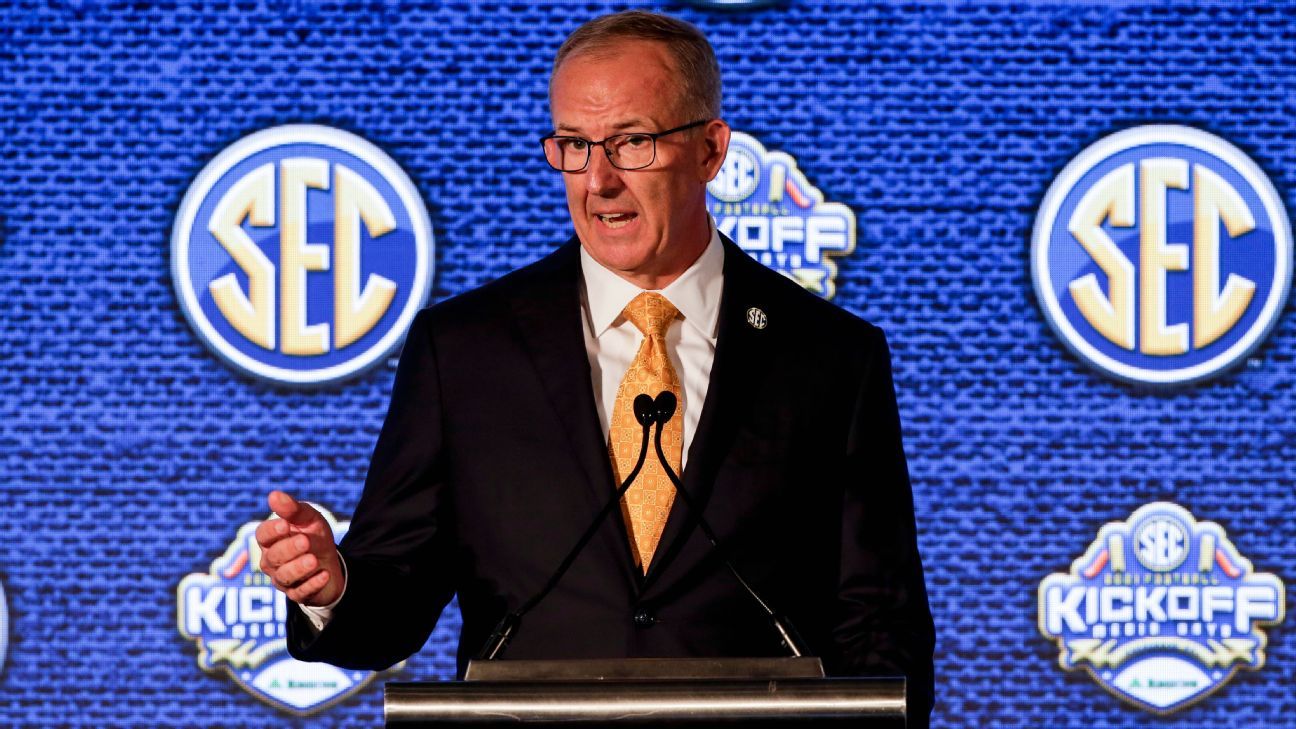HOOVER, Ala. — SEC media days kicked off on Monday with commissioner Greg Sankey announcing that six of the league’s 14 football teams have reached 80% vaccinations.
“That number needs to grow and grow rapidly,” Sankey said. “We have learned how to manage through a COVID environment, but we do not yet have control of a COVID environment.”
One thing the conference can control is what it will do if a team is unable to play due to COVID issues. Sankey said that games won’t be postponed in that event and that he has recommended that conference removes the 53-man roster minimum that was put in place last year.
The message to schools, Sankey said, is “you’re expected to play as scheduled.”
“That means your team needs to be healthy to compete, and if not, that game won’t be rescheduled,” he said. “And thus, to dispose of the game, the ‘forfeit’ word comes up at this point.”
Florida coach Dan Mullen, who spoke to reporters shortly after Sankey, declined to say what percentage of his team has been vaccinated, but noted how it was a “pretty high number” and “we’re getting close to the threshold.” The Gators had two October games postponed, but were able to play both later in the season.
For teams to avoid regular COVID testing and the requirement of wearing masks indoors, programs must achieve 85% vaccinations.
In his opening statement, Sankey strongly encouraged fans, coaches, players and staff to get vaccinated, saying how they’re both widely available and “highly effective.”
“And when people are fully vaccinated, we all have the ability to avoid serious health risks, reduce the virus’ spread, and maximize our chances of returning to a normal college football experience and to normal life,” he said. “With six weeks to go before kickoff, now is the time to seek that full vaccination.”
Sankey said they must remain vigilant against the virus, pointing out how a number of Olympians have been removed from competition and how last week’s Yankees–Red Sox game was postponed because of positive COVID tests.
“It’s not a political football,” Sankey said of vaccinations, “and we need to do our part to support a healthy society because, as we look back, the potential absence of college sports last year caused us to think about not losing sight of the lifelong experiences, the laboratory of learning that takes place, and the educational benefits that accrue to the people who participate on our teams.”
